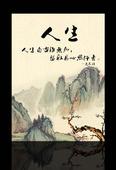http://physics.swu.edu.cn/wulixueyuan/upload/image/1273426154.jpg 熊祖洪:男,汉族,四川自贡人。中共党员,教授,博士生导师,物理科学与技术学院院长;是教育部“新世纪优秀人才”,重庆市杰出青年基金获得者,重庆市学术技术带头人后备人选,凝聚态物理重庆市重点学科点负责人。现为重庆市物理学会副理事长、重庆市高等学校学报研究会第三届理事会理事、重庆国际半导体学院理事、国家基金委项目评审专家、科技部国际科技合作项目评价专家、中组部第二批‘青年千人计划’通信评审专家。是Energy & Environmental Science、Appl. Phys. Lett.、Organic Electronics、 J. Appl. Phys.、Appl. Phys. A、Applied Surface Science、Synthetic Metals、Surface and Coatings Technology、Science in China Series G、Chinese Physics Letters和《中国科学》等期刊的审稿人。
学习和工作简历如下: 2007.03~2008.03 美国加州大学河滨分校(UC-R)物理及天文学系(CNSE)
高级访问 2003.02~2005.02 美国犹他大学(U. of Utah)物理系 副研究员 2002.11~至 今 西南大学物理科学与技术学院 教 授 2000.07~2002.11 复旦大学化学系 博士后 1995.09~2000.06 复旦大学物理系(应用表面物理国家重点实验室) 理学博士 1999.11~2000.02 香港城市大学物理及材料科学系(COSDAF)
研究助理 1991.09~1995.06 西南师范大学(现为西南大学)物理系 物理学士
从事凝聚态物理专业的科研活动:光电子学和自旋电子学的器件物理,如有机发光二极管及其阵列显示、有机磁敏器件(包括有机发光二极管和有机太阳能电池的磁响应)、半导体(包括有机半导体和Si等无机半导体)器件中电子自旋的注入、传输和探测等相关研究。先后在Nature、Phys. Rev. Lett.、Adv. Mater.、Phys. Rev. B、Appl. Phys. Lett.、Org. Electron.、J. Appl. Phys.、Appl. Phys. A、中国科学、自然科学进展、科学通报、物理学报等杂志上发表60余篇论文,论文引用达1000余次。近几年,先后主持了国家自然科学基金(3项)、 教育部“新世纪优秀人才支持计划”、教育部科学技术研究重点项目和重庆市杰出青年基金等项目。申报专利3项,出版学术著作1部,获省部级以上奖励与荣誉4项。
主要承担《固体物理》、《真空与薄膜技术》、《非线性物理》等课程的教学任务。 联系邮箱:zhxiong@swu.edu.cn 欢迎感兴趣的硕士研究生和大学本科生加盟。
主持的主要科研项目 (1)国家自然科学基金(11374242):激子分裂、载流子散射和激子-电荷湮灭在有机磁效应中的作用 (2)国家自然科学基金(10974157):电子-空穴对的界面自旋态调控有机半导体中的奇特磁效应 (3)国家自然科学基金(10504027):LSMO基有机巨磁电阻与有机电致发光的高磁场效应研究 (4)教育部新世纪优秀人才支持计划(NCET-05-0772):功能薄膜与器件的磁光电特性 (5)重庆市杰出青年基金(CSTC,2010BA6002):有机半导体中自旋控制的电荷传输及其光-电转换 (6)教育部科学技术研究重点项目(105145):低成本、高效率实现硅基微腔的有机发光二极管及其量子电动力学效应研究
20余篇代表性论文
(01) Identifying the roles of the excited states on the magnetoconductance in tris-(8-hydroxyquinolinato) aluminum Y. L. Lei, Q. M. Zhang, L. J. Chen, X. H. Yang, and Z. H. Xiong* Appl. Phys. Lett. 102, 113301 (2013) 影响因子:~3.79
(02)
A possible mechanism to tune magneto-electroluminescence in organic light-emitting diodes through adjusting the triplet exciton density P. Chen, Q. L. Song, W. C. H. Choy, B. F. Ding, Y. L. Liu and Z. H. Xiong* Appl. Phys. Lett. 99, 143305 (2011) 影响因子:~3.79
(03)
Positive and negative components of magnetoconductance in hole transport limited OLEDs Q. M. Zhang, Y. L. Lei, Q. L. Song, P. Chen, Y. Zhang, and Z. H. Xiong* Appl. Phys. Lett. 98, 243303 (2011) 影响因子:~3.79
(04)
Control of magnetoconductance through modifying the amount of dissociated excited states in Alq3-based organic light-emitting diodes P. Chen, Y. L. Lei, Q. L. Song, Q. M. Zhang, Y. Zhang, R. Liu, Z. H. Xiong* Appl. Phys. Lett. 96, 203303 (2010)
影响因子:~3.79
(05)
Magneto-electroluminescence in Alq3-based organic light emitting diodes doped with fluorescent dyes P. Chen, Y. L. Lei, Q. L. Song, Y. Zhang, R. Liu, Q. M. Zhang, Z. H. Xiong* Appl. Phys. Lett. 95, 213304 (2009) 影响因子:~3.79
(06)
Low temperature magnetic field effects in Alq3-based organic light emitting diodes Y. Zhang, R. Liu, Y. L. Lei, Z. H. Xiong* Appl. Phys. Lett. 94, 083307 (2009) 影响因子:~3.79
(07) Magneto-electroluminescence as a tool to discern the origin of delayed fluorescence: reverse intersystem crossing or triplet-triplet annihilation? P. Chen, Z. H. Xiong*,Q. M. Peng, J. W. Bai, S. T. Zhang, F. Li* Adv. Opt. Mater. 2, 142~148 (2014)
(08) Thermally activated singlet exciton fission observed in rubrene doped organic films Y. Zhang, Y. L. Lei, Q. M. Zhang, Z. H. Xiong*
Org. Electron.15, 577~581 (2014) 影响因子:~3.84
(09) Studying singlet fission and triplet fusion by magneto-electroluminescence method in singlet–triplet energy-resonant organic light-emitting diodes J. W. Bai, P. Chen, Y. L. Lei, Y. Zhang, Z. H. Xiong*, and F. Li*
Org. Electron.15, 169~174 (2014) 影响因子:~3.84
(10) Modulating the competition between dissociation and spin mixing in electron–hole pairs: An investigation of ultra-small field induced magnetoconductance responses in blended devices Q. M. Zhang, Y. L. Lei, W. Y. Jia, L. J. Chen, Y. Zhang, X. H. Yang, Y.T.You, Z. H. Xiong*
Org. Electron.14, 2875~2879 (2013)
影响因子:~3.84
(11) Magnetoconductance response due to the triplet exciton–charge interaction in organic light-emitting diodes Y. Zhang, Q. M. Zhang, Y. L. Lei, Z. H. Xiong*
Org. Electron.14, 2505~2509 (2013)
影响因子:~3.84
(12) Photoinduced magnetoconductance response of NPB-based diodes: Sign inversion by controlling carrier extraction Y. L. Lei, Q. M. Zhang, L. J. Chen, Y. T. You, Z. H. Xiong* Org. Electron.13, 2003~2007 (2012)
影响因子:~3.84
(13) Direct evidence for the electron-hole pair mechanism by studying the organic magneto- electroluminescence based on charge-transfer states Ping Chen, Mingliang Li, Qiming Peng, Feng Li*, Yu Liu*, Yong Zhang, Zuhong Xiong* Org. Electron. 13, 1774~1778 (2012) 影响因子:~3.84
(14)
Large contribution of triplet excitons to electro-fluorescence in small molecular OLEDs Yanlian Lei, Qunliang Song, Ping Chen, Qiaoming Zhang, Yong Zhang, Zuhong Xiong* Org. Electron.12 (1), 1512~1517 (2011)
影响因子:~3.84
(15)
Magnetoconductance of polymer–fullerene bulk heterojunction solar cells Y.L. Lei, Q.L. Song, Y. Zhang, P. Chen, R. Liu, Z. H. Xiong* Org. Electron.10 (7), 1288~1292 (2009)
影响因子:~3.84
(16)
Driving current and temperature dependent magnetic-field modulated EL in Alq3-based OLED Y.L. Lei, Y. Zhang, R. Liu, P. Chen, Q. L. Song, Z. H. Xiong* Org. Electron. 10 (5), 889~894 (2009)
影响因子:~3.84
(17)
Tunable, narrow, and enhanced electroluminescent emission from porous-Si-reflector- based organic microcavities X. J. Qiu, X. W. Tan, Z. Wang, G. Y. Liu, Z. H. Xiong*
J. Appl. Phys. 100(7), 074503 (2006) 影响因子:~2.17
(18)
Magnetic field dependent carrier injection at LSMO/organic semiconductor interfaces D. Wu, Z. H. Xiong, X. G. Li, Z.V. Vardeny, Jing Shi Phys. Rev. Lett. 95, 016802-1~016802-4 (2005) 影响因子:~7.94
(19)
Giant magnetoresistance in organic spin-valves Z. H. Xiong, D. Wu, X. G. Li, Z.V. Vardeny, Jing Shi Nature 427, 821~824(2004). 至今被引用620余次. 影响因子:~38.60
(20)
Flat layered structure and improved photoluminescence emission from porous silicon microcavities formed by pulsed anodic etching Z. H. Xiong, L. S. Liao, X. M. Ding, S. H.Xu, Y. Liu, L. L. Gu, F. G. Tao, S. T. Lee, X.Y. Hou Appl. Phys. A 74, 807~811 (2002) 影响因子:~1.55
(21)
Luminescent erbium-doped porous silicon bilayer structures Lanlan Gu, Zuhong Xiong, Gang Chen, Zhisong Xiao, Xiaoyuan Hou, and Xun Wang Adv. Mater. 13 (18), 1402~1405 (2001) 影响因子:~14.83
获奖及荣誉
(1) 2005年12月,获第三届“重庆市青年科学技术创新奖”(杰出奖) (2) 2005年12月,获重庆市高等学校优秀中青年骨干教师 (3) 2006年03月,入选教育部“新世纪优秀人才”支持计划 (4) 2006年06月,获西南大学“优秀党员”称号 (5) 2007年01月,获第四届重庆市北碚区“十大杰出青年”(提名奖) (6) 2008年08月,获重庆市学术技术带头人后备人选 (7) 2010年06月,获西南大学“优秀党员”称号 (8) 2011年03月,获西南大学“十一五”优秀研究生指导教师 (9) 2011年05月,获重庆市自然科学奖(三等奖,排名第四)
|  ruier123
ruier123
 上传/修改头像
上传/修改头像 ruier123
ruier123
 上传/修改头像
上传/修改头像